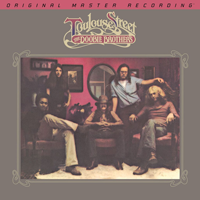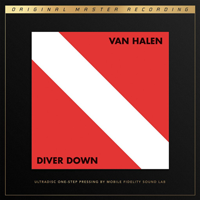Paul McCartney, at the age of 76, releases a new album this week in the form of Egypt Station. Akin to 2013's scattershot New, it finds the former Beatle working with a younger, in-demand producer. Greg Kurstin (Pink, Kelly Clarkson) is known for his tasteful use of electronics – no doubt tricks he learned from McCartney himself, who has experimented with nearly every genre imaginable. The record also presents a unified vision, one of an artist grappling with his age and youthful tendencies. While it'd be easy for McCartney to simply focus on his past and give touring audiences what they want to hear, he keeps challenging himself and fans to push forward – so much so that his solo career, which gave us hits such as "Jet," "Band on the Run," "Live and Let Die," and "Uncle Albert/Admiral Halsey," among many, many others, is practically as storied as that of his tenure with the Fab Four. Here, we dig deep and highlight five of McCartney's strongest solo works.
"Junior's Farm"
About a year after Band on the Run, McCartney and Wings dropped this little nugget of a rock n' roll tune as a one-off single. It just so happened to be the artist's last proper release for Apple Records. Lighthearted and at times, nonsensical – the opening verses reference a poker match as well as a conversation with an Eskimo – McCartney and company work up a surprising amount of sweat for a ditty about retreating to the relaxed vibe of "Junior's Farm." Ultimately, McCartney's lyrics nod to the hustle and bustle of working life, including a sly reference to rising grocery prices. But what endures are the sleek, speed-focused riffs and trippy, late-song bridge that brings the tune to a close with yearning feeling.
"Take It Away"
A slightly odd pop song, one that alternates reggae-like rhythms with hints of orchestral grandeur and melodic warmth, "Take It Away" illustrates McCartney's ability to experiment while still creating something built for mass appeal. The tune was also hailed as something of a mini-Beatles reunion upon release in 1982 since it features the drumming of Ringo Starr and production of George Martin. Found on the Tug of War album, the track exudes a healing vibe, largely referencing the power of music to comfort in times of loneliness. The tone, some speculate, came from Tug of War serving as the first proper McCartney album after the murder of John Lennon. If so, McCartney isn't out to mourn on "Take It Away," which beings with an off-kilter, jam-band-like vibe before embracing wide-open soundscapes. The end feels alternately magnificent and reflective, with a horn section creating a jubilant aura while wordless backing harmonies convey a hint of sadness.
"The End of the End"
McCartney has always looked ahead, as he famously does on the light-stepping Beatles cut "When I'm Sixty-Four." His 2007 work Memory Almost Full largely looks back, too, aside from the few moments when he contemplates how little time may be left. "The End of the End' is one such example, and one in which McCartney imagines his own funeral. The piano-driven cut, aided by a string arrangement, stands out as a tune that balances delicate moments while seeking to boost the spirits of his grievers. "No need to be sad," he sings, pleading for jokes and music while striking a piano with a surprising amount of force for a ballad trafficking in weighty topics. McCartney's message is clear: The music will outlive him.
"Temporary Secretary"
Released in 1980, and full of atonal synths and gurgling computer noises, this tune felt not so much of another era but another planet. Clearly having fun and experimenting with electronics, McCartney ultimately goes for a repetitive sounds – a more simplified take on Brian Eno landscapes. But a propulsive urgency gives it a sinister edge. Listening today, in the midst of the #MeToo/TimesUp era, the song feels even more poignant than McCartney probably originally intended. It exposes the sort of lopsided gender dynamics that not only lead to abuses of power but normalize them. "Mister Marks, can you find for me/Someone strong and sweet fitting on my knee?" McCartney sings with creepy directness before rattling off a list qualifications the female candidate need not possess. Perceived as a joke at its time of release, "Temporary Secretary" exposes the corporate world as a dark, dark place.
"Too Many People"
McCartney's image is often of the jolly Beatle, the smiling, happy-go-lucky melodic artist responsible for "Silly Love Songs." Not so on this opening number from 1971's Ram, which sees McCartney at his most vicious – down to the spirited, gritted-teeth vocals. To many Beatles diehards, the song is often singled out as an attack on Lennon. McCartney has admitted lines such as "too many people preaching practices" were directly aimed at his former bandmate, but the song transcends any personal drama between the ex-colleagues. With stop-and-start acoustics, angry backing vocals, and downtempo drifts into a lecture-like falsetto, "Too Many People" comes on as an anthem for anyone feeling fed up. Sometimes, as McCartney sings in the song's opening moment, we all just need to say "piss off."
Photo credit: MJ Kim and MPL Communications, Ltd.
7th Sep 2018



































